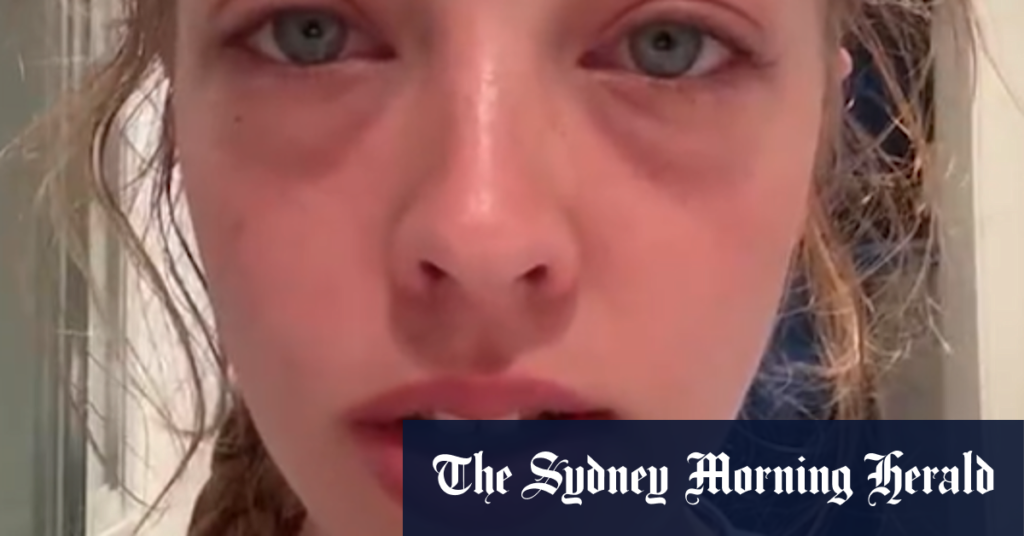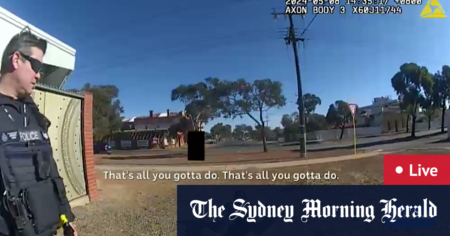“Victims … should have a say if a sentence is being altered, exactly the way if they were given parole or applied for parole, victims are notified about that,” the 27-year-old told this masthead.
Jett says victims of crime should be notified when a perpetrator makes an assisted dying application. Credit: Nevaeh Jett
“Realistically, he should just be left to suffer with the terminal illness that he had. Sure, have palliative care. That’s a standard human right, everybody deserves that. But to get a privilege that innocent people have been denied is preposterous.”
But Liz Jacka, a spokeswoman from Dying with Dignity NSW, said everybody had the right to the same end-of-life care.
“He was not going to be serving his full 30 years as he was terminally ill, and it is not possible for VAD to be an easy way out for other prisoners as you have to be terminally ill to qualify.”
Brett Collins, co-ordinator of the prisoners’ advocacy group Justice Action, said that victims should have no say in decisions regarding their perpetrators accessing VAD.
“The victims’ rights do not extend to adding extra pain and suffering to the offender,” he said.
“We would absolutely reject any involvement by the victim in a medical decision on voluntary assisted dying as an intervention. Otherwise, we are supporting torture, and we as a compassionate society must avoid anything that could be seen as such in this situation.”
Responding to controversy over the decision, NSW Premier Chris Minns resisted calls for change.
“I’m not proposing to change the system. These things are assessed by Justice Health,” he said.
A spokesman told this masthead that Justice Health NSW worked with relevant local health districts and Corrective Services NSW to allow eligible patients in custody to access voluntary assisted dying.
Loading
“We remain committed to providing high-quality health care, including end of life care. Like the wider community, patients under the care of Justice Health NSW must meet specific eligibility criteria to pursue voluntary assisted dying, including approval from the NSW Voluntary Assisted Dying Board,” the spokesman said.
The Community and Public Sector Union, the union responsible for prison, parole and community corrections officers, declined to comment on Hume’s case.
According to data published in November, in the seven months after voluntary assisted dying became legal in NSW, 1141 people applied to use it and 398 people died after being deemed eligible to take a lethal substance.
Read the full article here

















